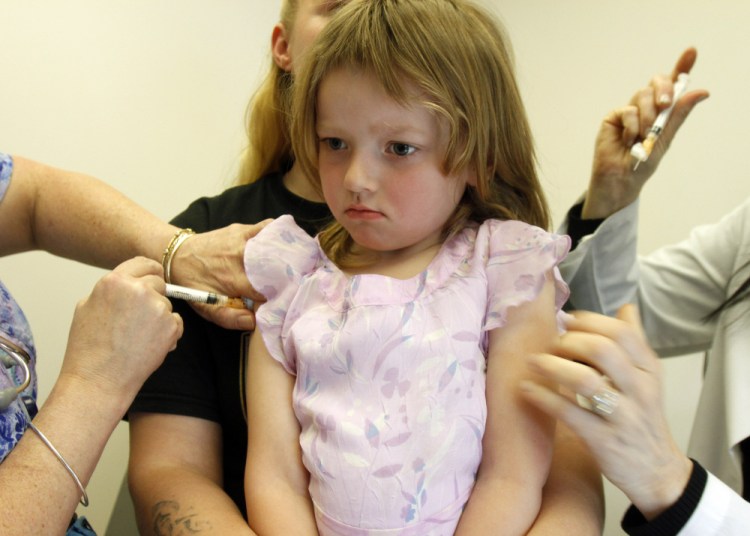The bad news: The rate of Maine parents with nonmedical reasons for refusing childhood vaccinations is back on the rise. The worse news: People who reject immunization for their children tend to live near others who think like they do, putting whole communities at higher risk as cases of preventable diseases spike.
During the 2016-17 school year, according to state officials, 4.8 percent of Maine parents cited religious or philosophical reasons for not having their kindergartners vaccinated. This demoralizing statistic represents not just a jump from the year before – when the rate was 4 percent – but also the reversal of a decline that started after Maine’s nonmedical opt-out rate reached 5.2 percent in 2013-14, the fifth highest in the U.S. that year.
The growth in the vaccine-refusal rate is driven by parents who have philosophical objections to vaccines. They distrust the overwhelming scientific consensus on the disease-prevention benefits of vaccinations in favor of outlier research like the long-since-debunked, deliberately falsified study that allegedly showed a link between vaccines and autism.
And there are a lot of people who think the same way. Just 53 percent of Americans are confident that vaccines are safe and effective, a 2014 Associated Press-GfK Public Affairs study found – about the same as the percentage who believe in ghosts and haunted houses.
But while believing in spirits doesn’t hurt anyone else, rejecting vaccines does. A new Harvard study shows a link between a spike in whooping cough in 2012 – which saw a 57-year high of 48,277 cases nationwide – and rising nonmedical vaccine exemptions. Looking at county-level data from five states that had higher-than-average rates of the respiratory disease (which can be deadly to babies), the counties with the most cases also had a high level of exemptions.
Why? In a recently released analysis of the 2012 Oregon whooping cough outbreak, researchers there concluded that social and geographical connections among anti-vaccination families laid the groundwork for an outbreak by allowing the disease to spread first among unvaccinated children, who then infect others in their community – including the 90 percent of their peers who have been immunized.
The same thing could be at work in Maine. A total of 227 whooping cough cases have been reported through June of this year – nearly double the total from the first six months of 2016.
Gov. LePage’s veto was enough to kill a 2015 effort to tighten vaccine exemption laws, and he’s not easily swayed when he’s dug in his heels on an issue. Maine lawmakers should wait him out and use his remaining months in office to craft a policy that will mandate vaccinations for healthy public school students and give all young people in Maine a sound place to learn.
Send questions/comments to the editors.


